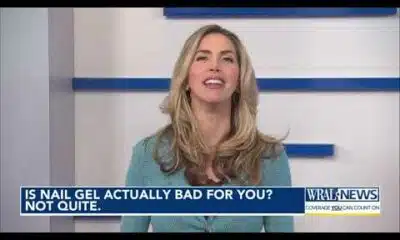(The Center Square) – Gov. Greg Abbott on Saturday signed Texas’ first school choice bill into law.
Abbott signed “the largest day one school choice program in the United States of America,” he said surrounded by children and state lawmakers.
“Today is the culmination of a movement that has swept across our state and across our country,” Abbott said. “A movement driven by parents … who wanted a better education option” for their children, describing examples. One was mother Hillary Hickland, “who was angry that a woke agenda was being forced on her daughter in a public school and that drove her to run for and win a seat in the Texas legislature,” he said. Abbott endorsed and campaigned for Hickland, who was in attendance at the signing.
“The movement was driven by activists and public policy advocates across the state fueled by a vision for an education system that levels the playing field for parents and expands opportunity for our great children,” Abbott continued. “A movement driven by families who shared my vision – that it is time that we put our children on a pathway to having the number one ranked education system in the United States of America knowing that school choice is part of the formula of achieving that mission.”
He also said he’s traveled across the state “talking about school choice for more than half a decade and … met with thousands of families who have longed for education freedom. These families, and thousands more, have been yearning to choose a school that best fits their child. Now they have that option.”
When Abbott ran for reelection in 2022, he “promised school choice for the families of Texas,” he said. “Today, we delivered on that promise.”
The bill creates the state’s first Education Savings Account program to provide taxpayer-funded subsidies for primarily low-income families of roughly $10,000 per student.
Both the Texas Senate and House budgets allocate $1 billion for the program to support roughly 100,000 students, prioritizing low-income and special needs students, The Center Square reported. The savings accounts can be used by parents to send their children to the school of their choice, including private schools.
For more than 20 years, Democrats and Texas House Republicans have opposed a taxpayer-funded subsidy to allow families to send their child to a private school of their choice, arguing funds would be taken away from public schools and that taxpayer money should not fund private school education.
While the Texas Senate has passed a bill creating an Education Savings Account for several legislative sessions in a row, the bill always died in the Republican-controlled House – until now.
The tide turned after Abbott campaigned for 16 House Republican candidates who challenged incumbents who opposed a bill he championed in the last legislative session. Another five Republicans who opposed the bill didn’t run for reelection last year. Abbott’s endorsed Republican challengers won their primaries and runoff elections, vowing to vote for the state’s first ESA program.
The tide also turned after the Texas House elected a new speaker, state Rep. Dustin Burrows, R-Lubbock, who vowed that the ESA bill would pass the House, which it did on April 17. Burrows also traveled with Abbott statewide promoting the bill, pledging multiple times on social media that it would pass, The Center Square reported.
Burrows thanked members of the Texas House for voting for the bill, saying, “they knew school choice was the moral thing to do. They knew it was the right thing to give children opportunities to go to the place that it’s in their best interest. They knew it was the principled thing to do, that competition makes all things better. That is what America was founded upon. I do believe the work is not done. We have to make sure this is not only the biggest school choice [program] in history but the best.”














































